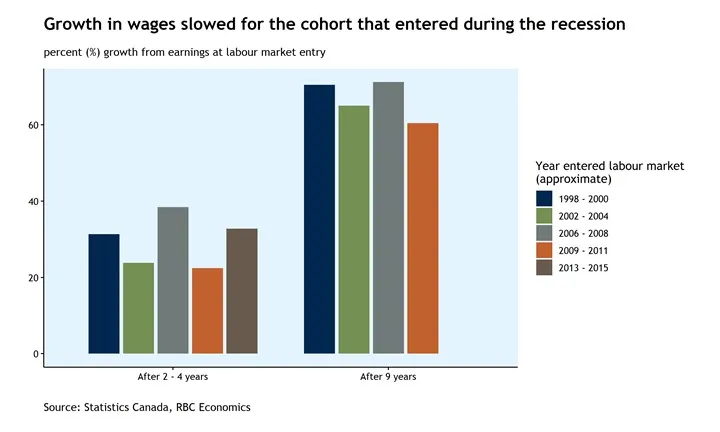
Travel & Tourism back on its feet and set to exceed 2019
London, UK: The World Travel & Tourism Council’s (WTTC) 2023 Economic Impact Research (EIR) today reveals the UK Travel & Tourism sector is forecast to exceed the 2019 peak this year.
Sustainable Development Goals (SDGs)
- No Poverty
- Zero Hunger
- Good Health and Well-being
- Quality Education
- Gender Equality
- Clean Water and Sanitation
- Affordable and Clean Energy
- Decent Work and Economic Growth
- Industry, Innovation, and Infrastructure
- Reduced Inequalities
- Sustainable Cities and Communities
- Responsible Consumption and Production
- Climate Action
- Life Below Water
- Life on Land
- Peace, Justice, and Strong Institutions
- Partnerships for the Goals
Economic Impact of the UK Travel & Tourism sector
- The sector is set to contribute £252.4BN to the UK economy this year, surpassing the 2019 pre-pandemic high of £248.5BN.
- WTTC is also forecasting that the sector will create almost 380,000 jobs this year, recovering almost all of the jobs lost due to the COVID-19 pandemic to reach more than 4MN, with around one in nine workers in the UK, in the Travel & Tourism sector.
- International visitor spend to the UK is forecast to reach £26.18BN, just 6% behind the 2019 peak of £38.6BN.
A look back on last year
- Last year, the sector’s GDP contribution grew by 65% to reach more than £237BN, representing 9.5% of the economy, edging closer to the 2019 high of 9.9% of the economy.
- Last year the sector also created 1.1MN more jobs from the previous year to reach 3.6MN jobs nationally – one in 10 jobs across the UK.
- The sector has now recovered 1.5MN of the 1.7MN jobs lost during the pandemic.
- Last year also saw the return of international travellers heading to the UK with spending from overseas visitors growing over 300% from 2021 to reach almost £30BN.
- Domestic visitor spend fully recovered in 2022 to match the pre-pandemic high of £165BN, showing that whilst the UK has taken longer to attract high spending overseas visitors, the staycation is here to stay.
Statement from Julia Simpson, WTTC President & CEO
Julia Simpson, WTTC President & CEO, said: “Travel & Tourism creates one in every ten jobs in the UK. It contributes over £250bn a year to the UK economy.
“Whilst our forecasts show the sector will reach a quarter of a trillion pounds this year, and predicts international visitor spend will recover by early next year, the UK Government should be aiming higher.
“The recovery and long-term growth of the sector is at risk with the self-axing of VAT-free shopping for international tourists. We will continue to see high-value tourists choosing France and Italy over the UK and taking with them economic value and jobs.”
The next decade
The global tourism body is forecasting that the sector will grow its GDP contribution to almost £315BN by 2033, nearly 11% of the UK economy and will employ over 5MN people across the country, with one in seven Brits working in the sector.
European Travel & Tourism sector
In 2022, the European Travel & Tourism sector contributed €1.9TN to the regional economy, just 7% below the 2019 peak. WTTC forecasts the region’s GDP contribution from the sector will reach more than €2TN in 2023 – within touching distance of the 2019 highpoint.
The sector employed almost 35MN people across the region in 2022, an increase of 2.9MN from the previous year but still 3.2MN behind pre-pandemic levels. WTTC forecasts the sector will fully recover the jobs lost during the pandemic by the end of 2024.
For more information
For more information, please visit WTTC Research Hub
SDGs, Targets, and Indicators
1. Which SDGs are addressed or connected to the issues highlighted in the article?
- SDG 8: Decent Work and Economic Growth
- SDG 9: Industry, Innovation, and Infrastructure
- SDG 12: Responsible Consumption and Production
- SDG 17: Partnerships for the Goals
The article discusses the economic impact of the Travel & Tourism sector, job creation, and international visitor spend, which are all connected to the SDGs mentioned above.
2. What specific targets under those SDGs can be identified based on the article’s content?
- SDG 8.9: By 2030, devise and implement policies to promote sustainable tourism that creates jobs and promotes local culture and products.
- SDG 9.1: Develop quality, reliable, sustainable, and resilient infrastructure, including regional and transborder infrastructure, to support economic development and human well-being.
- SDG 12.8: By 2030, ensure that people everywhere have the relevant information and awareness for sustainable development and lifestyles in harmony with nature.
- SDG 17.17: Encourage and promote effective public, public-private, and civil society partnerships, building on the experience and resourcing strategies of partnerships.
These targets align with the goals of promoting sustainable tourism, supporting economic development through infrastructure, promoting sustainable consumption and production, and fostering partnerships.
3. Are there any indicators mentioned or implied in the article that can be used to measure progress towards the identified targets?
- Number of jobs created in the Travel & Tourism sector
- Contribution of the sector to the UK economy
- International visitor spend
- GDP contribution of the sector
These indicators can be used to measure progress towards the identified targets. For example, an increase in the number of jobs created, a higher contribution to the economy, and an increase in international visitor spend would indicate progress towards SDG 8.9. Similarly, an increase in the GDP contribution of the sector would indicate progress towards SDG 9.1.
SDGs, Targets, and Indicators
| SDGs | Targets | Indicators |
|---|---|---|
| SDG 8: Decent Work and Economic Growth | 8.9: By 2030, devise and implement policies to promote sustainable tourism that creates jobs and promotes local culture and products. | – Number of jobs created in the Travel & Tourism sector – Contribution of the sector to the UK economy |
| SDG 9: Industry, Innovation, and Infrastructure | 9.1: Develop quality, reliable, sustainable, and resilient infrastructure, including regional and transborder infrastructure, to support economic development and human well-being. | – Contribution of the sector to the UK economy – GDP contribution of the sector |
| SDG 12: Responsible Consumption and Production | 12.8: By 2030, ensure that people everywhere have the relevant information and awareness for sustainable development and lifestyles in harmony with nature. | – International visitor spend |
| SDG 17: Partnerships for the Goals | 17.17: Encourage and promote effective public, public-private, and civil society partnerships, building on the experience and resourcing strategies of partnerships. | – Contribution of the sector to the UK economy |
Behold! This splendid article springs forth from the wellspring of knowledge, shaped by a wondrous proprietary AI technology that delved into a vast ocean of data, illuminating the path towards the Sustainable Development Goals. Remember that all rights are reserved by SDG Investors LLC, empowering us to champion progress together.
Source: wttc.org

Join us, as fellow seekers of change, on a transformative journey at https://sdgtalks.ai/welcome, where you can become a member and actively contribute to shaping a brighter future.






